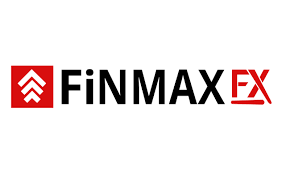Bitcoin Trading in Australia – A Beginner’s Guide
Launched in 2009, Bitcoin is the de-facto cryptocurrency of choice across the world. If you’re based in Australia and you wish to trade some coins of your own, the process couldn’t be easier. You simply need to choose a cryptocurrency broker, open an account, deposit some funds and you’re good to go. But how do you know which Bitcoin trading platform is best for you?
In this guide, we show you everything you need to know to start trading Bitcoin in Australia. Not only do we review Australia’s best Bitcoin trading platforms, but we also take you through the basics of Bitcoin trading and provide a step-by-step guide on how to get started.
-
- What is Bitcoin and How do you Trade it?
- How to Make Money from Bitcoin Trading in Australia
- What Regulations are in Place for Bitcoin Trading in Australia?
- What Risks are Involved with Bitcoin Trading in Australia?
- How do Trading and Investing in Bitcoin Differ From Each Other?
- What Analysis Techniques Can be Used for Bitcoin Trading?
-
- What is Bitcoin and How do you Trade it?
- How to Make Money from Bitcoin Trading in Australia
- What Regulations are in Place for Bitcoin Trading in Australia?
- What Risks are Involved with Bitcoin Trading in Australia?
- How do Trading and Investing in Bitcoin Differ From Each Other?
- What Analysis Techniques Can be Used for Bitcoin Trading?
How to Trade Bitcoin in Australia in 3 Quick Steps
Don’t have time to read our guide all of the way through? Below you will find our three quick steps on how to trade Bitcoin right now!
Step 1: Choose an Australian Bitcoin Trading Platform
When it comes to choosing an online platform to trade Bitcoin, you typically have two options. This includes a conventional cryptocurrency exchange or an online broker. We would suggest avoiding the former, as most cryptocurrency exchanges do not accept Australian payment methods. Instead, you will need to deposit funds with a digital currency. Many cryptocurrencies are also unregulated, meaning they offer less protection than licensed Bitcoin brokers.
By using an online cryptocurrency broker, not only can you fund your account with a debit/credit card or bank account, but the trading platforms that we discuss below are regulated by tier-one licensing bodies like ASIC, the FCA, and CySEC. Let’s take a look at the best Australia Bitcoin trading platforms.
1. Plus500 - Leading Australian Bitcoin CFD Broker
Plus500 is a market leader in the cryptocurrency CFD space. This means that you will be trading cryptocurrencies without taking ownership. Instead, you will be speculating on the future direction of Bitcoin against fiat currencies like the US dollar.
This comes with a number of benefit, such as being able to short-sell Bitcoin if you think its price is likely to go down. Trading Bitcoin CFDs also allows you to apply leverage of up to 2x, meaning that a $500 account balance will permit a maximum trade size of $1,000.
Plus500 allows you to easily deposit funds with an Australian debit/credit card, bank account, or Paypal. This comes with a minimum deposit of USD $100, which is about AUD $150. Plus500 is also heavily regulated, with licenses from ASIC, the FCA, CySEC, and MAS. Its parent company is also listed on the London Stock Exchange.
In terms of fees, Plus500 allows you to trade Bitcoin on a commission-free basis. This means that the only fee applicable is that of the spread. All deposits and withdrawals at Plus500 are fee-free, too. Finally, Plus500 offers a mobile trading app for iOS and Android devices, which is great if you want to trade Bitcoin on the move.
Our Rating

- No withdrawal ffes
- 0% trading commission
- ASIC regulated
- No educational material
80.5% of retail investors lose money when trading CFDs with this provider.2. FinmaxFX - Bitcoin Trading Site With High Leverage Limits
FinmaxFX is an offshore broker that hosts CFDs and forex. This includes a full suite of cryptocurrencies such as Bitcoin, Ethereum, and Bitcoin Cash. The reason that FinMaxFX makes our list is that it offers higher leverage limits.
This means that a $1,000 account balance would permit a trade size of $10,000. You do, however, need to tread with caution when applying leverage -especially when trading Bitcoin. FinmaxFX can offer higher leverage than Plus500 because it's not regulated by ASIC or another major governing body.
In terms of the trading platform itself, FinMaxFX supports MetaTrader 5. This is ideal if you are looking to use an automated Bitcoin trading bot, and it also supports a range of advanced trading tools.
If you do like the sound of FinMaxFX for your Bitcoin trading needs, the platform allows you to get started with a deposit of USD $250, which is about AUD $370. Supported payment methods include a debit/credit card, bank wire, e-wallet, or Bitcoin itself. Keep in mind that there are some rather high withdrawal fees to consider before signing up. The spreads are also higher than some other Bitcoin trading platforms.
Our Rating

- Leverage of 10x on cryptocurrencies
- Accepts most popular payment methods
- Bonus available to new customers
- Trading fees are somewhat high
- Not ASIC regulated
There is no guarantee you will make money with this provider.3. AvaTrade - Global Broker With Spreads Starting at 0.9 Pips
AvaTrade is a traditional online broker that offers thousands of CFD products. On top of stocks, indices, forex, hard metals, and energies, you can also trade Bitcoin. The broker offers full support for MT4 and MT5, which again is ideal if you want to utilize advanced trading tools and automated Bitcoin trading systems.
This also means that you can trade Bitcoin on the move via the MT4/MT5 mobile app. As an established broker, AvaTrade holds several licenses. This includes regulators based in Japan, Canada, South Africa, and Ireland. You can easily get money into the broker with an Australia bank account or debit/credit card.
Minimum account balances start at USD $100, which is about AUD $150. All deposits are fee-free, which is an added bonus. When it comes to trading fees, AvaTrade offers tight spreads that start at 0.9 pips. The platform also offers a good range of educational tools, which is useful if you are just starting out in the online Bitcoin trading arena.
Our Rating

- Spreads from just 0.9 pips
- Multiple licenses
- Both MT4 and MT5 supported
- No fundamental research features
- Its educational resources are sparse
There is no guarantee you will make money with this provider.4. FXCM - Zero-Commission Broker With Low Minimum Deposit
FXCM is a UK-based broker that accepts Australian residents. The platform has an excellent reputation in the online brokerage scene, with several licenses under its belt. On top of a fully-fledged license with ASIC, it is also regulated in the UK and South Africa. Much like Plus500, FXCM is listed as a public company on the London Stock Exchange.
What we also like about the broker is that you can trade Bitcoin without paying any commissions. As such, it's only the spread that you need to look out for. If you are relatively new to the cryptocurrency trading space, FXCM allows you to get started with a deposit of just USD $50, which is about AUD $75.
You can do this with an Australian debit/credit card or bank account. Finally, FXCM is worth considering if you are planning to trade other asset classes, as its platform hosts thousands of financial instruments. This includes stocks, indices, commodities, and forex.
Our Rating

- Low minimum deposit
- 0% commission Bitcoin trading
- Regulated by ASIC and the FCA
- Spreads start from 1.2 pips
- Mobile trading platform could be improved
5. IG - Established Broker With a Cryptocurrency Index
Launched in 1974, IG is a UK broker that has a client base in excess of 178,000 traders. The platform is home to more than 17,000 markets, which includes cryptocurrencies. All in the form of CFDs, this covers Bitcoin, Ethereum, Litecoin, Ripple, Bitcoin Cash, and NEO. Each cryptocurrency is priced against the USD, meaning that you can also engage in short-selling.
Leverage is available on cryptocurrencies, which is capped at 2x for retail clients. IG also offers a cryptocurrency index. This gives you exposure to the ten largest digital currencies in the space through a single order. When it comes to fees, IG does not charge any trading commissions, and spreads are super-competitive. You can deposit funds with a debit/credit card or bank account.
However, IG does charge a fee of 0.5% on MasterCard transactions and 1% on Visa. In terms of the Bitcoin trading platform itself, you can choose from MT4 or IG's proprietary web-trader. You can also trade on the move via the IG mobile app. Finally, IG is a heavily regulated broker with multiple licenses. This includes ASIC and FCA, so your funds should remain safe at all times.
Our Rating

- Spreads from 0.6 pips
- Supports MT4 trading platform
- Excellent research department
- 1% fee when using Visa and 0.5% via MasterCard
- Spreads on some crypto pairs are somewhat expensive
Step 2: Learn How the Bitcoin Trading Market Works in Australia
So now that we have discussed the best Bitcoin trading platforms currently available to Australians, we now need to take a closer look as to how cryptocurrency trading actually works. While you might have years of experience in the traditional online investment space, cryptocurrencies like Bitcoin are a completely different kettle of fish.
Bitcoin is regarded as a very volatile asset, so it’s important that you understand the risks before taking the plunge. Let’s take a closer look at what you need to know before trading Bitcoin in Australia.
What is Bitcoin and How do you Trade it?
 In a nutshell, Bitcoin is a digital currency that you can send and receive virtually. The project was launched in 2009 by an anonymous developer known as ‘Satoshi Nakamoto’. Interestingly, although still to this day nobody knows the true identity of Nakamoto, Australian citizen Craig Wright claims that it was himself that created Bitcoin.
In a nutshell, Bitcoin is a digital currency that you can send and receive virtually. The project was launched in 2009 by an anonymous developer known as ‘Satoshi Nakamoto’. Interestingly, although still to this day nobody knows the true identity of Nakamoto, Australian citizen Craig Wright claims that it was himself that created Bitcoin.Anyway, the underlying Bitcoin network is backed by ‘blockchain’ technology. In its most basic form, the blockchain ensures that Bitcoin operates without a third-party intermediary. It also ensures that the system is not controlled by any financial institution, nation-state, or central bank.
Instead, all Bitcoin transactions and sent and received in a ‘decentralized’ manner. As Bitcoin is a virtual currency, it must be stored in a digital wallet. This then allows you to send and receive coins at the click of a button. As great as the underlying technology is for the future of money, it is important to note that most people buy Bitcoin for speculative reasons.
That is to say, investors purchase Bitcoin because they think it will increase in value, as opposed to buying it to use as a medium of exchange. On top buying Bitcoin as an investment vehicle, you can also trade it. This works much like forex trading, insofar that you will speculating on whether you think the Bitcoin price will go up or down. You can do this against fiat currencies like the US and Australian dollar, or against other digital currencies like Ethereum and Ripple.
You can either buy Bitcoin while purchasing the underlying asset and then sell it, or you can trade contracts for difference (CFDs), meaning you speculate on the price without actually owning any Bitcoin. This means you can go short and speculate on the price going down as well as up, and you can also trade with leverage, meaning you borrow capital from a broker to make larger trades.
How to Make Money from Bitcoin Trading in Australia
The way you make money from Bitcoin trading is by speculating on its future value. This can either be in the short or long run. As is the case in the traditional forex arena, Bitcoin trading is based on ‘pairs’. In other words, you will be trading Bitcoin against an alternative currency. As noted earlier, this can be against fiat currencies like the US dollar, or against other digital currencies.
Once you have selected a pair to trade, you then need to speculate which way you think the exchange rate will move. Much like any other asset class in the investment space, the Bitcoin price will change on a second-by-second basis. This provides ample opportunity to trade Bitcoin, not least because the markets operate on a 24/7 basis.
In order to clear the mist, below we list an example of what a Bitcoin trade would look like in practice.
- You want to trade Bitcoin against the Australian dollar
- The current price of the pair is $14,873
- You think that Bitcoin is overpriced, so you decide to place a sell order
- You stake AUD $2,000
- A few days later, the price of BTC/AUD goes down the $12,289
- This represents gains of 17.3%, so you decide to cash in your profits by placing a buy order
- All in all, the trade made you a profit of $346 (17.3% of $2,000)
Of course, had the price of Bitcoin gone the other way, you would have lost money. You would also need to factor in trading fees, the spread, and overnight financing.
What Regulations are in Place for Bitcoin Trading in Australia?
One of the most important things that you need to assess before choosing a Bitcoin trading site is that of regulation. This is because the cryptocurrency exchange space has gone through hack after hack in recent years, with billions of dollars worth of digital coins subsequently being stolen.
The good news is that there are now lots of traditional online brokers, including forex brokers and share trading brokers, that are slowly but surely moving into Bitcoin. This means that you will benefit from the same regulatory safeguards that you would expect when trading other assets like stocks and shares, forex, or commodities.
At the forefront of this is the Australian Securities and Investments Committee (ASIC), the Australian body responsible for governing the domestic financial sector. By sticking with cryptocurrency brokers that are regulated by ASIC, you will stand the best chance possible of being able to trade Bitcoin in a safe and secure eco-system.
What Risks are Involved with Bitcoin Trading in Australia?
The main risk associated with Bitcoin trading in Australia is that of losing money. As we noted earlier in our guide, cryptocurrencies operate in a highly speculative financial arena. While volatility levels are much thinner than they once were, it is not uncommon for a digital currency to go up or down by 10% in a single trading day. When you start factoring in the added risks of leverage, you must ensure that you have effective risk management tools in place.
There is also a risk associated with regulation. Sure, while Australians can freely buy, sell, and trade Bitcoin at the click of a button, there is no guarantee that this will always be the case. It is likely that cryptocurrency-specific legislation will one day come into force in the country, so there is no knowing how this will impact the industry.
Finally, you also need to consider the risks of using a cryptocurrency exchange that is not regulated by a tier-one licensing body. Such exchanges are actually very popular with Australians, not least because they often offer less common digital currencies that cannot be found at established brokers. However, without a respected regulatory body overseeing the platform, your security is potentially at risk.
How do Trading and Investing in Bitcoin Differ From Each Other?
 It is super important to make the distinction between ‘trading’ and ‘investing’ in Bitcoin. The latter refers to the process of buying Bitcoin in the traditional sense, and holding on to the coins long-term. If and when the price of Bitcoin continues to increase, the investor will look to sell them back to Australian dollars at a profit. This operates much in the same way as how investors buy shares.
It is super important to make the distinction between ‘trading’ and ‘investing’ in Bitcoin. The latter refers to the process of buying Bitcoin in the traditional sense, and holding on to the coins long-term. If and when the price of Bitcoin continues to increase, the investor will look to sell them back to Australian dollars at a profit. This operates much in the same way as how investors buy shares.At the other end of the spectrum, Bitcoin ‘trading’ refers to the process of buying and selling cryptocurrency pairs on a short-term basis. This is like trading forex, oil, gold, or natural gas. Instead of holding on to your coins for a number of months or years, you will be looking to make small, but frequent gains. In fact, most Bitcoin traders will buy and sell crypto-pairs on either a day trading or swing trading basis.
An additional difference between the two investment streams is that of ownership. That is to say, when you invest in Bitcoin you will typically own the coins, and then withdraw them to a private wallet. In the case of Bitcoin trading, you will likely find it more beneficial to buy and sell cryptocurrency CFDs. In doing so, you’ll benefit from lower spreads, more competitive fees, and the protections of an ASIC regulated broker.
What Analysis Techniques Can be Used for Bitcoin Trading?
With the Bitcoin trading markets moving at an incredibly fast pace, it is important for you to understand how analysis works. Much in the same way as the traditional financial markets, seasoned cryptocurrency traders will use a combination of technical and fundamental analysis. This gives them the best chance possible of predicting which way a particular Bitcoin pair is likely to go in the short-term.
- Technical Analysis: Technical analysis is the process of analyzing Bitcoin trading price charts and is typically used by day traders. For example, if you wanted to determine which way BTC/USD will move in the coming days, you would need to look at historical pricing trends. This is a highly advanced skill that can take many months (or even years) to master. This is because you will need to learn how technical indicators work. These are tools that help you identify potential trends that are forming, and how these trends relate to current price action. There are more than 100+ technical indicators that can be used to help with this.
- Fundamental Analysis: Research that involves fundamental analysis will look at real-world news events, and how the event could impact the future price of Bitcoin. For example, when the US Securities and Exchange Commission (SEC) announced in 2018 that it had rejected a Bitcoin ETF application, the price of the digital currency nose-dived. This is why it is crucial to be kept abreast of new cryptocurrency developments. Fundamental analysis is used by both Bitcoin traders and investors.
Step 3: Choose a Bitcoin Trading Strategy
So now that you know the ins and outs of how Bitcoin trading works, what regulations you need to look out for, and what analysis techniques are used by seasoned investors, we are now going to discuss some specific Bitcoin trading strategies that you might want to consider.
Day Trading
Bitcoin Day traders will actively buy and sell cryptocurrency pairs. They will keep positions open for a number of minutes or hours, but rarely more than a day. The overarching objective is to make small, but frequent gains when the Bitcoin trading price changes throughout the trading day. Day traders actually seek volatility, as it presents ample opportunities to make gains.
Scalping
Scalping is the process of trading within a tight pricing range. This often happens with Bitcoin, where the price will go up and down by a small percentage for a number of days before it ‘breaks out’. In investment jargon, the pre-breakout stage is known as a consolidation period. For example, let’s say that Bitcoin trades at lows of $8,900 and highs of $9,100 for 8 days straight.
This would be highly conducive for a scalping trader, as they will capitalize by placing buy and sell orders at both ends of the range. Every time the price of Bitcoin bounces between the two ranges, the scalper would open and close positions. Crucially, scalping is well worth mastering, as it is often viewed as a low-risk way to trade Bitcoin.
Swing Trading
Swing traders focus on medium-term trends. This will see the investor keep a position open for a number of days, weeks, or even months. For example, let’s say that Bitcoin is on a downward trajectory, where it has just breached a key support line of $6,000.
The swing trader will likely keep the position open until it is approaching the next support line, or until it appears the trend is about to reverse. When it does, a shrewd swing trader might place a buy order to catch the new upward trend of Bitcoin.
Holding
‘Holding’ simply refers to a traditional ‘buy and hold’ strategy. In other words, you will be investing in Bitcoin with the view of selling your coins in a number of years. This is a hugely popular strategy with newbie traders that believe in the wider cryptocurrency phenomenon. If you do decide to buy and hold Bitcoin in the long run, it is important that you find a safe way to store the coins. The best option in this respect is to obtain a hardware wallet.
Bitcoin Breakout
As noted a moment ago, a Bitcoin breakout typically occurs after an extended consolidation period. In the example we gave earlier – where Bitcoin was trading in a tight range of $8,900 – $9,100 – a shrewd investor wouldn’t care which direction the breakout goes.
This is because the trader will place sensible buy and sell orders at both ends of the range. This will allow the investor to ‘catch’ the trend’ in a risk-averse manner. When a breakout does occur, Bitcoin will often go up or down in a parabolic manner.
Step 4: Open a Bitcoin Trade
At this stage, you are ready to open an account and initiate a Bitcoin trade with a broker of your choosing.
Pros and Cons of Bitcoin Trading
Pros
- Bitcoin can be traded around the clock – the markets never close
- Volatility creates plenty of trading opportunities
- You can trade Bitcoin against fiat currencies or other digital coins
- Daily trading volumes are now in the billions of dollars – never struggle for liquidity
- Lots of Bitcoin trading platforms are regulated by ASIC
- You can easily fund your Bitcoin trading account with an Australian debit/credit card or bank account
- Ability to short Bitcoin if you think its price will go down
Cons
- Bitcoin is a highly speculative asset class
- You could lose significant amounts of money
- Some Bitcoin trading platforms operate without a regulatory license
Conclusion
The Bitcoin trading scene is now a multi-billion dollar battleground. Not only can you buy and sell instruments against the Australian dollar, but you can also trade crypto-cross pairs. This provides ample opportunities for those of you that want to trade cryptocurrencies from the comfort of your home.
There are lots of trading platforms active in the space that now hold that all-important ASIC license, so you just need to find the right Australia Bitcoin trading platform for you.
References
To ensure we bring you the most reliable and accurate information possible, our writers use primary sources to support their content. These include studies, government resources and commentary from industry experts.
- Moneysmart.gov.au. “Cryptocurrencies and ICOs, https://moneysmart.gov.au/investment-warnings/cryptocurrencies-and-icos“, Accessed June 4, 2020.
- Comply Advantage. “Cryptocurrency Regulations in Australia, https://complyadvantage.com/knowledgebase/crypto-regulations/cryptocurrency-regulations-australia“, Accessed June 4, 2020.
FAQs
What fiat currencies can I trade Bitcoin against?
The most traded Bitcoin pair globally is that of BTC/USD. However, some cryptocurrency brokers also offer support again other fiat currencies. On top of this Australian dollar, this often includes the British pound and Euro.
How do I deposit funds into a Bitcoin trading site?
This depends on the type of Bitcoin trading site that you join. For example, regulated online brokers have the remit to accept Australian debit/credit cards, bank accounts, and e-wallets. Cryptocurrency exchanges without a banking license often accept digital coins only.
Can I trade Bitcoin with leverage in Australia?
Yes, there are no restrictions imposed on Australians when it comes to leverage. Your limits will, however, be determined by the Bitcoin broker you sign up with. For example, while the likes of Plus500 offer 2x on cryptocurrencies, FinMaxFX offer 10x. Then you have unregulated exchanges like BitMex which offer leverage of up to 100x.
How can I short Bitcoin?
You can short Bitcoin by using an online broker that supports crypto-CFDs
Kane Pepi
View all posts by Kane PepiKane holds academic qualifications in the finance and financial investigation fields. With a passion for all-things finance, he currently writes for a number of online publications.
WARNING: The content on this site should not be considered investment advice and we are not authorised to provide investment advice. Nothing on this website is an endorsement or recommendation of a particular trading strategy or investment decision. The information on this website is general in nature, so you must consider the information in light of your objectives, financial situation and needs. Investing is speculative. When investing your capital is at risk. This site is not intended for use in jurisdictions in which the trading or investments described are prohibited and should only be used by such persons and in such ways as are legally permitted. Your investment may not qualify for investor protection in your country or state of residence, so please conduct your own due diligence or obtain advice where necessary. This website is free for you to use but we may receive a commission from the companies we feature on this site.
Copyright © 2022 | Learnbonds.com
We use cookies to ensure that we give you the best experience on our website. If you continue to use this site we will assume that you are happy with it.Scroll Up


